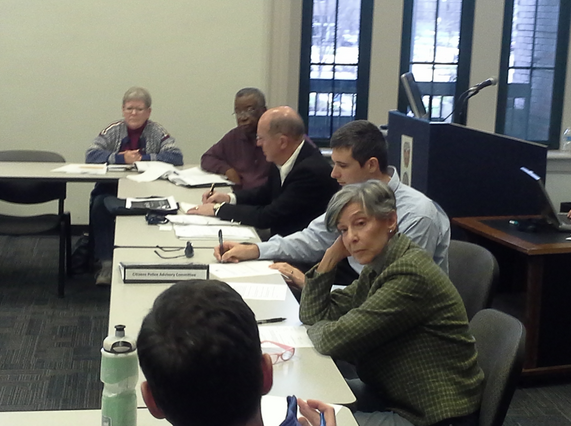Last week, a small card inside the
Asheville Blade's venerable old computer stopped working, leaving the cantankerous beast unable to connect to the internet and throwing the finely-tuned schedule your local for news and views relies on into a bit of disarray.
In this case, all ended up well. After some great help from some of our supporters the necessary repairs were made and news coverage resumed. It was a great reminder that for all the Blade's duty is to shine a light on some of the serious troubles many people in this city face, there's a lot of great people here willing to go out of their way to support.
While what we've covered over the past two weeks is a good deal more important than the travails of one journalist with a malfunctioning computer, it's a reminder that often big consequences can often come from seemingly small or overlooked matters like a phone call to an agency, a missing tip, an overlooked meeting of a city board or a line in a legal code.
But those things can have major impacts on our lives, our city and our futures. A number of recent Asheville Blade stories illustrate this well:
Who to Call When Your Boss Steals Your Pay — As tourists and locals rush around in their holiday shopping frenzy, wages and working conditions have recently become a major topic of conversation. This isn't surprising because the city's now making national lists as one of the most unaffordable areas in the country and despite much-vaunted economic growth and low unemployment, wages have actually declined over the last decade.
While what to do to solve this problem is a topic of much debate, there's also the issue of what to do when even the labor laws on the books are violated, and workers have to deal with wage theft, discrimination, harassment or violations of their rights.

Asheville's no slouch when it comes to the number of reported wage theft complaints and its economy relies on low-wage sectors like the restaurant, retail and service industries that are generally the worst offenders for stealing wages from employees. A lack of unions makes the environment even worse.
Many, for example, don't know that employers legally can't withhold tips to pay for unspecified “overhead” costs or that federal law guarantees employees the right to talk about their pay or working conditions, including criticizing their employer in public.
So the Blade's provided a useful round-up of local, state and federal organizations that can provide legal help with responding to one of these injustices. While there are many problems with the protections provided for workers across our city and country, these organizations offer some assistance in situations where workers would otherwise have no help at all, and sometimes all that needs to happen is a phone call.
Land Wars — Development rules are without a doubt one of the driest parts of local government, usually of little interest except to planners and urban policy wonks.
But they also affect one of the key pieces of any city — who gets to live there (or doesn't), what gets built, who profits from it, how neighborhoods change — and these kind of questions can bring out deep emotions and pack local government chambers.
Asheville City Council, during its last meeting of the year, had to deal with a number of major development fights, including a big change to where housing is allowed and two controversial developments, and there's more on the way in the coming year as Asheville wrestles with aging infrastructure and a housing crisis.
This piece traces the course not just of those battles and their outcomes, but of the political fights of the last decade that set the stage for them, stretching back to the days when Asheville's local government was dominated by conservatives. This history involves dueling agendas, deep splits among the progressives who eventually took control and major unresolved questions about the city's future.
Checking the Box —
Asheville's Citizens' Police Advisory Committee usually doesn't get that much attention, but with a police chief on the way out amid major controversy and renewed national scrutiny on law enforcement, a recent meeting proved the exception.
Those who attended saw city staff and police officials who will soon craft the process for selecting the next chief and overhauling the department get an earful from the board members. Many of those on the committee sharply criticized the city and the consultants it hired to select the previous chief and form plans for reform as uninterested in real citizen input and intent on “checking the box” rather than listening to the needs of Asheville.
The exchange shines a light on tensions surrounding the city's police department, especially skepticism from members of the public who've seen multiple promises of improvements and better planning. Whether this time bears a different result from its predecessors remains to be seen.

It's the hope of myself and the Blade's contributors that our efforts help to provide essential news and views, especially on issues where context and depth is most needed. Beneath the “little things” are, often, bigger stories than we might believe.
Running a reader-supported newspaper with no ads or wealthy backers has many benefits, but a huge budget for equipment isn't one of them. As for those pesky equipment problems, if you want to help the Blade get on somewhat firmer footing,
donate and help us keep the lights on and the stories coming.
Until next time.
David Forbes
Editor, Asheville Blade